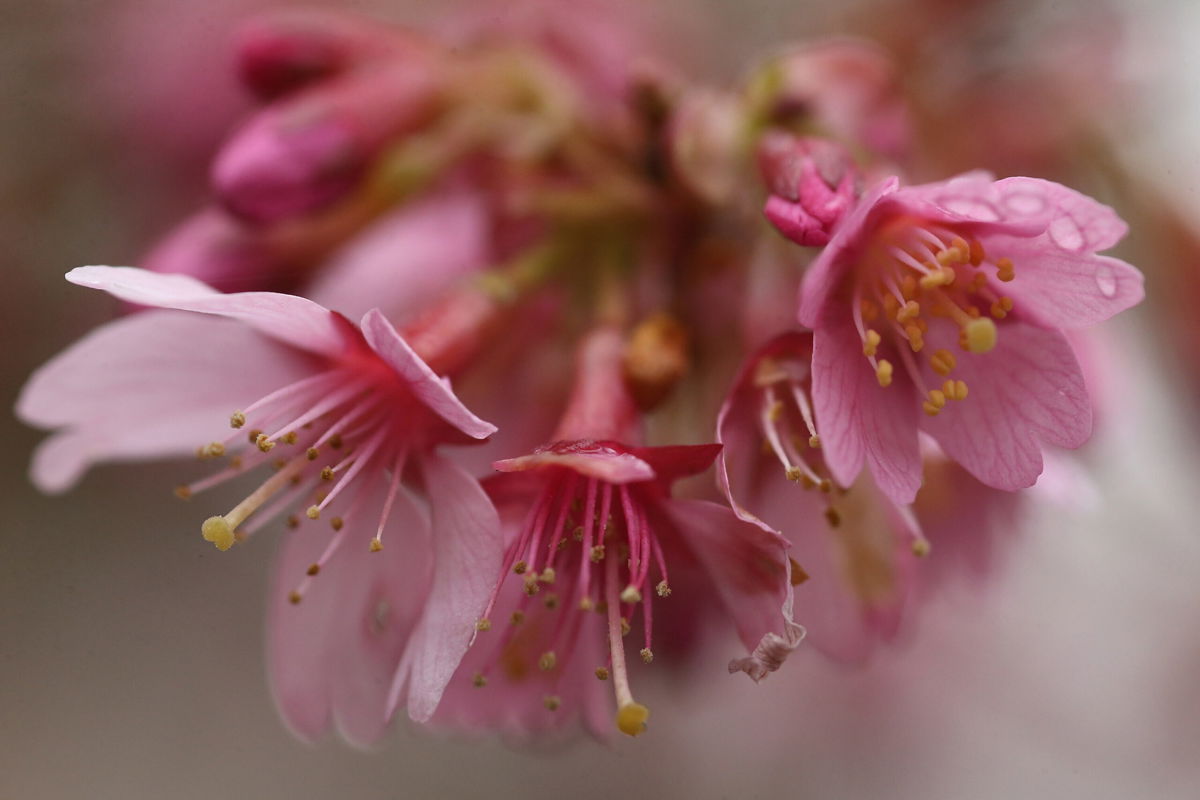UK plants are flowering a whole month earlier than they used to, study shows

Plants may die if there is a late frost during their "vegetation period."
By Isabelle Jani-Friend, CNN
Spring has sprung early in parts of the UK this year, and while British people are celebrating the unseasonal warm weather, there’s actually cause for concern.
Climate change is making plants across the British Isles flower, on average, a month earlier than they used to, a new study shows. And that might set off a chain of events that could disrupt ecosystems and potentially cause entire species to collapse.
If global temperatures continue to rise at their current rate, spring could eventually start in February on a regular basis, according to the study, published in the Proceedings of the Royal Society B.
“The results are truly alarming,” said Professor Ulf Büntgen, lead author of the study, from the University of Cambridge’s Department of Geography.
“When plants flower too early, it is expected to have detrimental consequences for wildlife, agriculture and gardeners.”
During winter, plants are able to protect themselves from frost because they put themselves in a dormant “winter sleep” mode, Büntgen told CNN.
However, an early spring brings forward the “vegetation period,” the phase when plants begin to grow. If a frost occurs during this time, the plants will suffer, and some may die.
Fruit trees are particularly at risk of a late frost, which could bring serious consequences for fruit farmers, who stand to lose entire crop yields.
While the study speaks to a long-term trend, other parts of the world have reported recent early flowering seasons. Last March, Japan recorded its earliest cherry blossom bloom in 1,200 years. In 2019, a heat wave in the United States caused sunflowers to bloom earlier than usual, because they are susceptible to temperature changes. While people enjoyed the early blooms, the overenthusiastic flowers made it harder for farmers to plant other crops in those areas.
Another cause for concern is something researchers call “ecological mismatch.”
Plants, insects, birds and other wildlife have evolved over time to coordinate the way they develop. A change to this cycle can initiate a chain reaction, causing damage to ecosystems.
“A certain plant flowers and attracts a particular type of insect, which attracts a particular type of bird, and so on,” Büntgen said.
“But if one component responds faster than the others, there’s a risk that they’ll be out of sync, which can cause species to collapse and lead to biodiversity loss if they can’t adapt quickly enough.”
The study is based on the analysis of more than 400,000 observations of over 400 plant species dating back to the mid-18th century until 2019. The database relies on citizen reporting, or crowd sourcing.
Researchers looked at the first flowering dates of trees, shrubs, herbs and climbers in locations from the Channel Islands to Shetland in Scotland and Northern Ireland, and classified their findings by location, elevation and whether they were from urban or rural areas.
The first flowering dates were compared with monthly climate records, which showed that the average first flowering had advanced by an entire month and is strongly linked to rising global temperatures.
This data is stored by the Woodland Trust in what’s known as Nature’s Calendar, a database with 3.5 million entries that date back to the 1730s.
Rather than breaking the data down to look at individual species, which can become “too noisy” and inconclusive, the study focused on a bigger sample size to ensure the data is robust, Büntgen said.
“To really understand what climate change is doing to our world, we need these much larger datasets that look at whole ecosystems over a long period of time.”
He added that Nature’s Calendar was a rich data source with high scientific value.
“Alongside temperature records, we can use it to quantify how climate change is affecting various ecosystems across the UK.”
The-CNN-Wire
™ & © 2022 Cable News Network, Inc., a WarnerMedia Company. All rights reserved.